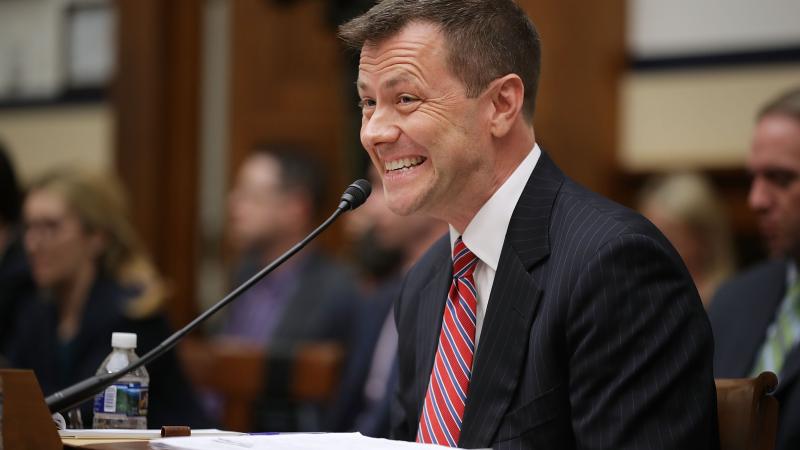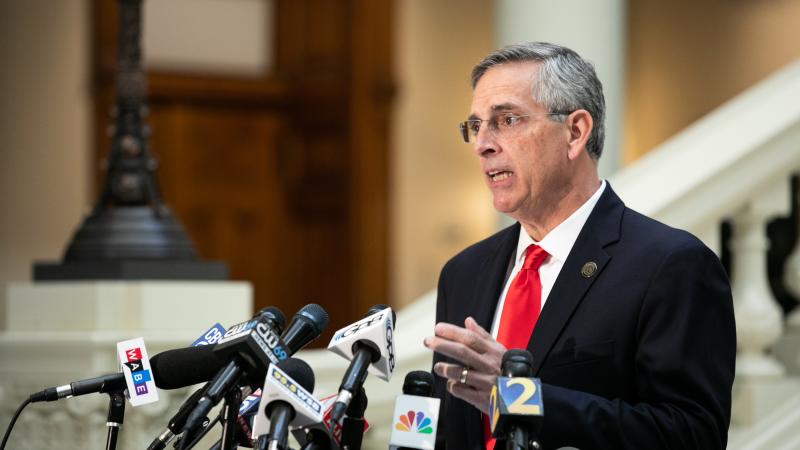Costly California reparations proposals hailed as national 'blueprint' as federal bill reintroduced
The cost of statewide slavery reparations in California has been estimated at $800 billion, while a reparations committee in San Francisco has separately proposed payouts of $5 million per eligible descendant of slaves.
The San Francisco reparations committee suggesting $5 million payouts per eligible descendant of slaves borrows from a federal bill to study reparations that was recently reintroduced in Congress.
Like the federal bill, California's state reparations legislation, enacted on Sept. 30, 2020, has set up a reparations task force, which a state senator said could be a "blueprint" for the rest of the country.
"If we do it right, without a doubt, this will be a blueprint for America," Democratic California state Sen. Steven Bradford said last week.
In March, California Assemblyman and task force member Reginald Jones-Sawyer said the state's reparations actions will be a "model for everyone, whether they do it at their local level, state level or when they finally do national reparations."
Establishing commissions or task forces to study reparations gives lawmakers a way to distance themselves from taking a position on the form of reparations they would want to see implemented as the process plays out. Instead, the potential roadmap for reparations has been delegated to commissions at the state level in California and locally in San Francisco which make recommendations for policymakers to choose from. The proposed legislation in Congress, which has been introduced by Democratic lawmakers since 1989, would do the same.
The federal bill, the Commission to Study and Develop Reparation Proposals for African Americans Act, declares that its purpose is, in part, to "address the fundamental injustice, cruelty, brutality, and inhumanity of slavery in the United States and the 13 American colonies between 1619 and 1865 and to establish a commission to study and consider a national apology and proposal for reparations for the institution of slavery."
The 13 colonies were under the control of Great Britain until the U.S. gained its independence in 1776.
Texas Democratic Rep. Sheila Jackson Lee reintroduced the House version in the current session of Congress. It has 88 Democrat cosponsors but faces an uphill battle in the GOP-led House. The Senate version was reintroduced by New Jersey Democratic Sen. Cory Booker, and it currently has 24 Democrat cosponsors.
"This bill will allow for a moral and social overview of the implications of slavery and the status of African Americans today," said Rep. Lee. "I look forward to working with Senator Booker in a bipartisan manner to get this bill through the House and Senate and on to the president's desk."
In the case of the California state bill, the reparations task force said it won't decide on a single form of reparations to implement. Instead, the final decision, based on the task force's recommendations, would be made by California Democratic Gov. Gavin Newsom.
A cost estimate for statewide reparations provided to the task force by economists came in at about $800 billion. The federal bill does not spell out how the final decision would be made on the form of reparations after the federal commission makes its recommendations.
The San Francisco Board of Supervisors also passed a bill that set up a reparations committee, which has so far made a slew of reparations proposals from $5 million payouts to descendants of slaves to $1 homes and $97,000 of guaranteed annual income. It is unclear how it will be determined who is eligible for reparations under the proposals. The estimated costs of each recommended form of reparations haven't been determined by the commission. The committee's final report on reparations to the San Francisco Board of Supervisors has a June deadline.
Last month, Tinisch Hollins, the vice-chair of the African American Reparations Advisory Committee, predicted that their actions on reparations is going to set a "national precedent."
“I don’t need to impress upon you the fact that we are setting a national precedent here in San Francisco,” Hollins said.














